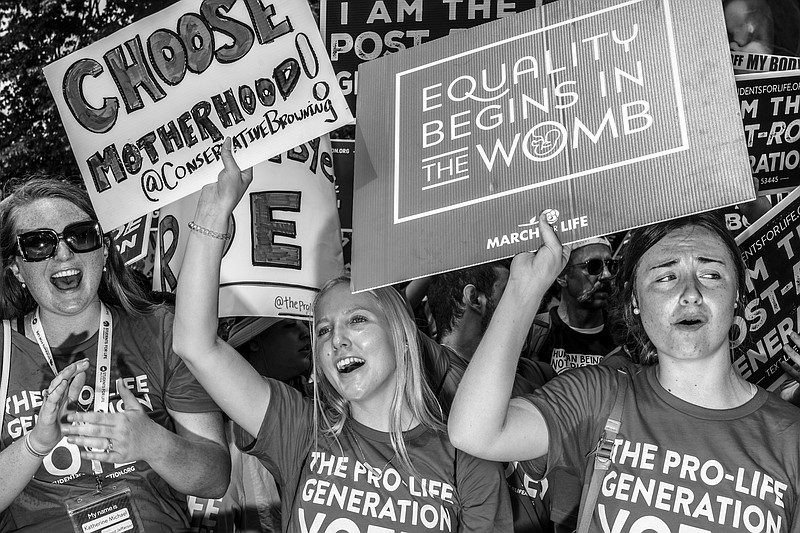Some liberals seemed genuinely surprised by the results of the Kansas referendum on abortion. A reliably Republican state, a sweeping pro-choice victory. Who could have foreseen it?
Others suggested that only the anti-abortion side should be shocked. "The anti-abortion movement has long claimed that voters would reward Republicans for overturning Roe," wrote Slate's Mark Joseph Stern. "They are now discovering how delusional that conviction has always been."
It's true that activists often tend toward unrealistic optimism. But nobody who favored overturning Roe ought to be particularly surprised by the Kansas result. By the margin, maybe - but a Republican state voting to preserve a right to abortion emphasizes what's always been apparent: With the end of Roe, the pro-life movement now has to adapt to the democratic contest that it sought.
Right now, majorities of Americans favor abortion restrictions that were ruled out under Roe, but only slightly over one-third of the country takes the position that abortion should be largely illegal, a number that shrinks if you remove various exceptions.
That means that millions of Americans who voted for Donald Trump favor a right to a first-trimester abortion - some of them old-fashioned, country-club Republicans, others secular, working-class voters or anti-woke "Barstool conservatives" who dislike elite progressivism but find religious conservatism alienating as well.
In many red as well as purple states, those constituencies hold the balance of power. Even with exceptions, a state probably needs to be either very Republican or very religious for a first-trimester abortion ban to be popular, which basically means the Deep South and Mountain (and especially Mormon) West.
Kansas already has a late-term ban, and the prolix ballot measure didn't specify an alternative; it just promised the legislature a general power to write new abortion laws. Would the result have been different if the referendum had proposed restrictions around 12 weeks? I suspect so. Can the anti-abortion movement settle for that kind of goal?
Serious pro-lifers have always known that if you bring abortion back to the democratic process, you have to deal with public opinion as it actually exists. And the way you change opinion is by proving the incremental version of your ideas workable so that voters trust you more and more.
That requires addressing immediate anxieties head-on. It is not enough, for instance, for opponents of abortion to react to stories about delayed care for miscarriages or ectopic pregnancies by pointing out that state laws are being misinterpreted.
And it requires longer-term creativity so that every new protection for the unborn is combined with reassurances that mothers and children alike will be better supported than they are today.
When I make the latter point, I get a reliable liberal retort to the effect that Republicans could have done more for families already and didn't, so why would that ever change?
But this is the point of bringing democratic pressure to bear. Religious conservatives have pushed Republicans away from libertarian economics in the past - "compassionate conservatism" emerged from evangelicals and Catholics - but so long as abortion was essentially a judicial battle, the link to family policy was indirect.
Now that Republicans have to legislate on abortion, though, there are incentives to make the link explicit - especially in states where socially conservative Democrats, especially Hispanic voters, might join an anti-abortion coalition.
That doesn't mean it will happen, just that the incentives of democratic politics are how it would happen. The end of Roe opens the door wide to a pro-life movement that's incrementalist and creative; it doesn't ensure that such a movement will emerge. But the results in Kansas show what will happen if it doesn't.
The New York Times
